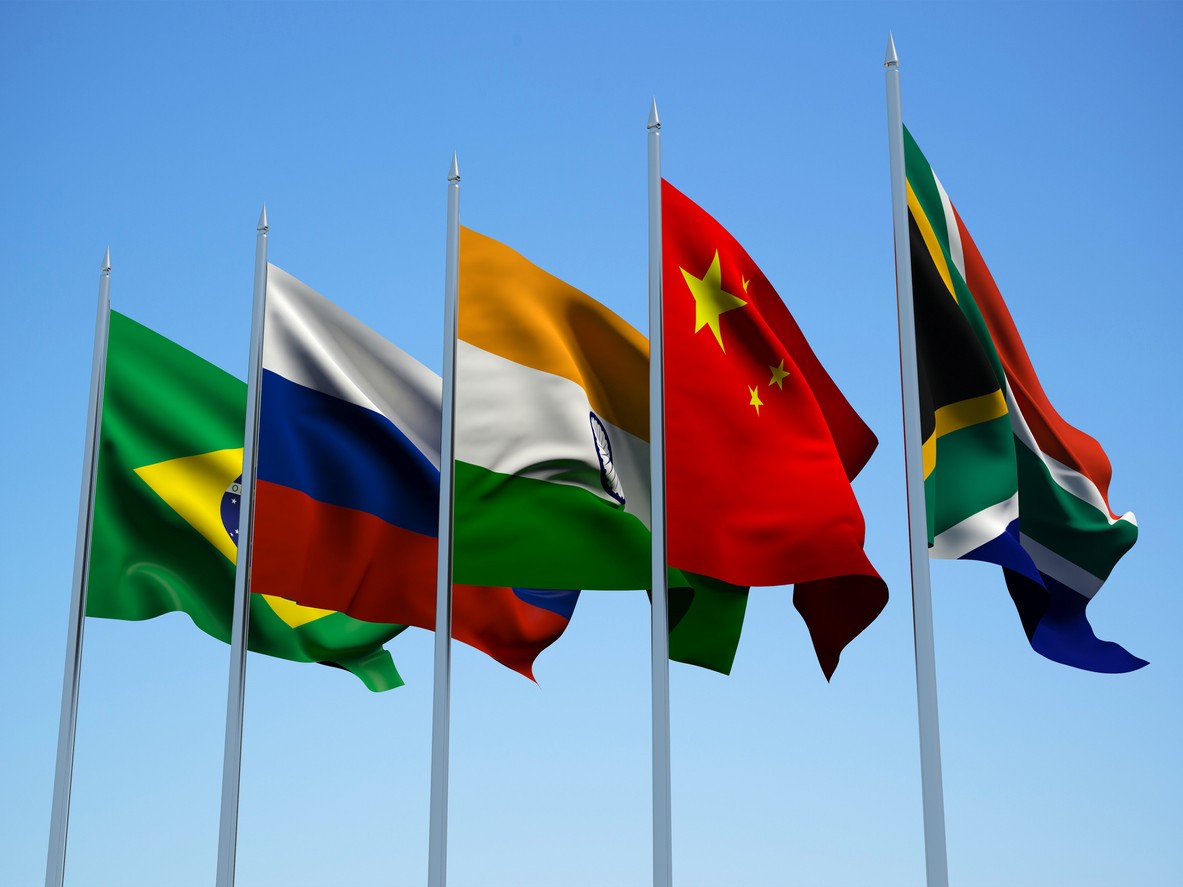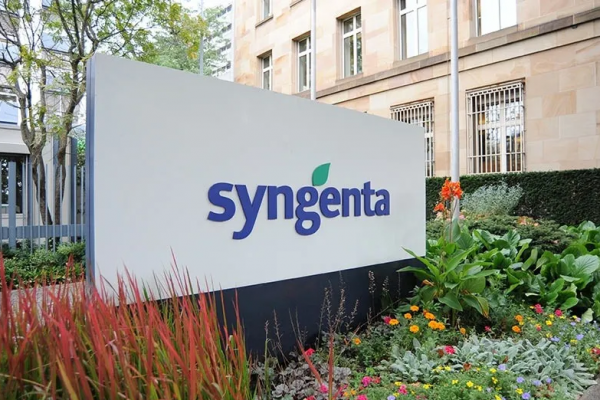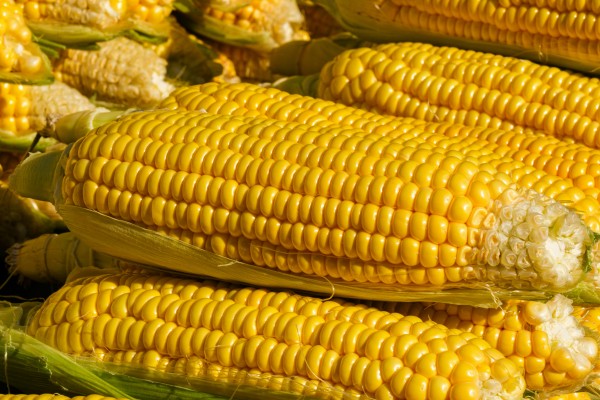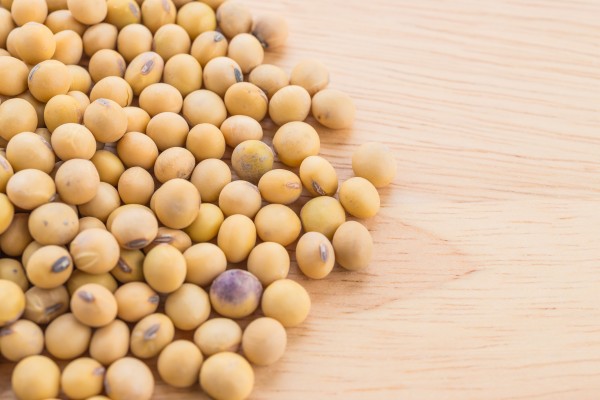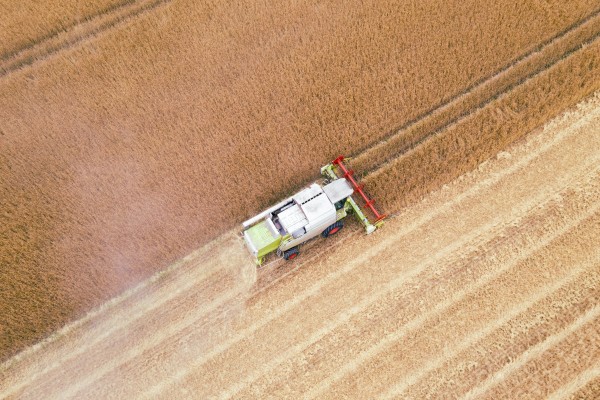On August 31, experts from the BRICS Competition Law and Policy Centre took part in a meeting of the BRICS Working Group for research on competition issues in the food market as part of the Sixteenth Annual Competition Law, Economics & Policy Conference in South Africa, which was held from August 31 to September 1.
The meeting also included a presentation of the book "Global Food Value Chains and Competition Law", which was published this year by Cambridge University Press and was prepared under the guidance of the BRICS Competition Law and Policy Centre.
The meeting was moderated by Alexey Ivanov, Director of the BRICS Competition Law and Policy Centre at the National Research University Higher School of Economics.
The session was also attended by:
- Andrey Tsyganov (Deputy Head, FAS Russia);
- Shri Yogesh Kumar Dubey (Deputy Head, Competition Commission of India);
- Guo Qia (Deputy Head, State Administration for Market Regulation, SAMR, China);
- Jason Aproskie (Principal Economist, South African Competition Commission);
- Eleanor Fox (Professor, School of Law, New York University);
- Ioannis Lianos (President, Hellenic Competition Commission);
- Dennis Davis (Retired Judge President, CAC);
- Pierre Regibeau (Chief Economist, DG Comp);
- Simon Roberts (Professor, University of Johannesburg);
- Claudio Lombardi (Lecturer, Aberdeen University).
Opening the meeting, Alexey Ivanov noted that as a result of the crisis, the world again faced the problem of food shortages. Traditional supply chains have been disrupted, and price spikes are forcing governments to raise export barriers to prevent food shortages in domestic markets. Price volatility undermines regional food security and contributes to social instability.
“According to information provided by the UN, there is a growing number of people finding themselves in a very vulnerable position of coming hunger, and that is a scary and very serious challenge. The competition authorities shouldn't miss out this type of challenges and leave it to other to other departments of the government or business to deal with this”,
Alexey Ivanov stressed.
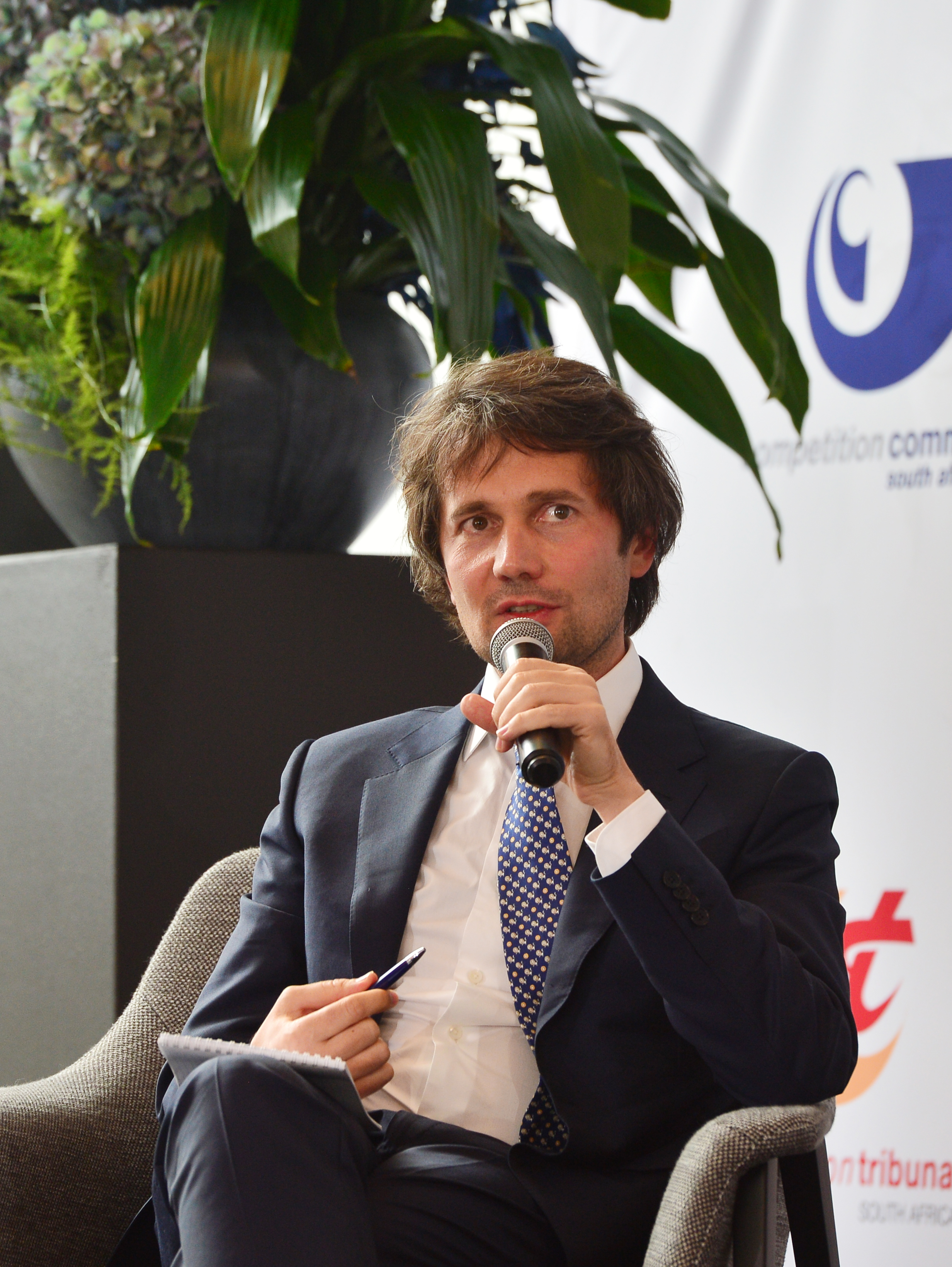
The moderator invited the experts to discuss the impact of global competition on food security and the role of the antimonopoly authorities of the BRICS countries in creating a more stable market environment.
Andrey Tsyganov spoke about the regulatory measures taken by the FAS Russia in the context of the global crisis.
“Over the past three years, we have focused on providing subsidies to producers, preventing serious disruptions in the food market, and resorting to soft regulation measures – a warning system without long investigations and strong sanctions.”
In addition, as a result of negotiations with federal retail chains, the agency achieved a reduction in markups on important food products from an average of 22% to 13%, Andrey Tsyganov said. Separately, the Deputy Head of the FAS noted the importance of the activities of the BRICS working group on the study of competition in the food market. He mentioned the report prepared with the support of the BRICS Center in 2017 on the state of competition in the seed market of the BRICS countries.
“It was not only theoretical work, it had serious practical results. The outcomes of this report were issued in considering a number of global mergers, including the Bayer-Monsanto case.”
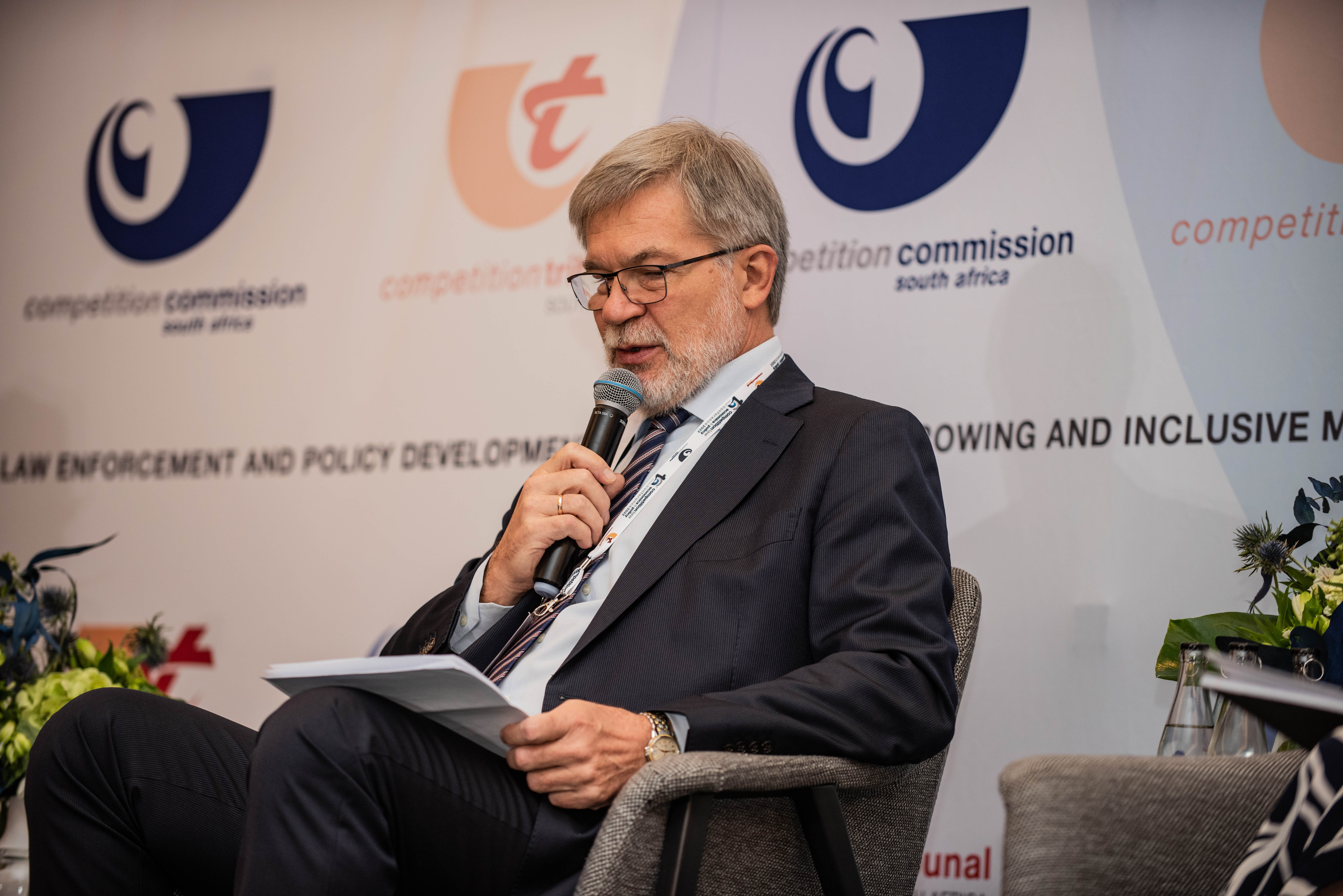
Jason Aproskie spoke about monitoring prices for basic foodstuffs in South Africa. He cited high-profile cases of price gouging – for ginger and garlic at the height of the pandemic (then there were a number of publications in the media that these products could be effective against COVID-19) and for sunflower oil in recent months. Aprosky sees the solution to the country's food security issue in the development of regional value chains and support for local farmers.
“The development plan for the South African economy is the localization of production and the purchase of goods from local producers.”
Shri Yogesh Kumar Dubey noted that although India is largely self-sufficient in food, imports are also important, and instability in global markets affects the state of competition within the country.
Presenting the book "Global Food Chains and Competition Law", Eleanor Fox highlighted the relevance of this work in light of the current food crisis. She noted that in addition to the main causes of the crisis: climate change, financial speculation, pandemic, military conflict, there is also a factor of market forces, and here the antimonopoly authorities can play a role in stabilizing the economy.
“Can antitrust policy be improved? To do this, it is necessary to “reset” the mechanisms of analysis, consider markets as ecosystems, where attention is paid not only to the consumer, but also to the producer, and reach a new level of cooperation between antitrust agencies, government trade bodies and organizations both domestically and internationally.”
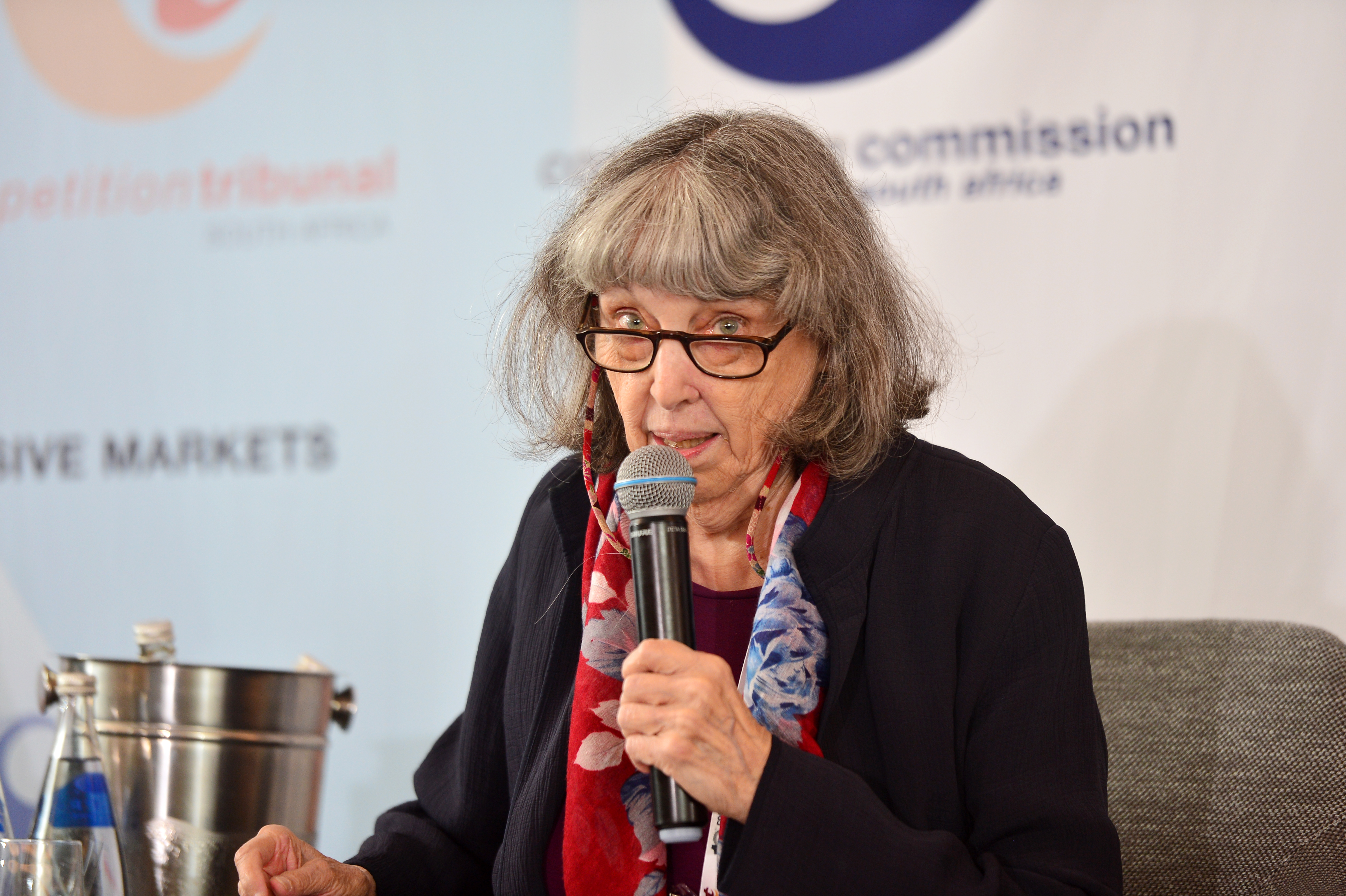
Ioannis Lianos also noted the need for multi-level and multidisciplinary cooperation:
“There is a need for cooperation between the antimonopoly authorities of different countries with scientists, researchers and, of course, among themselves. The decision of the agency in a single country does not solve much, but if several countries take action against a large company, it will have a real effect.”
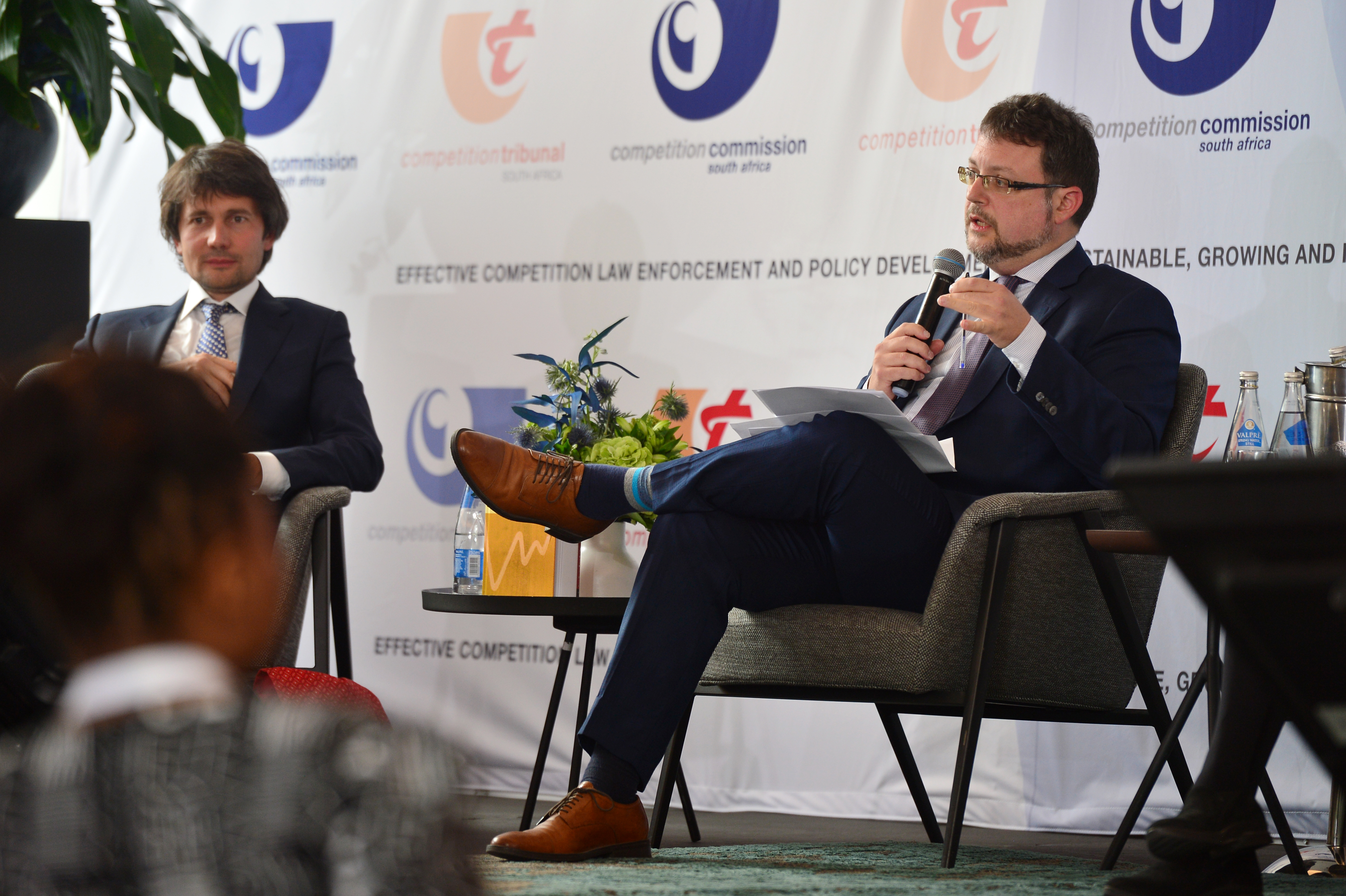
Each member of the value chain is important, Dennis Davis stressed, because problems of various kinds can arise in different parts of the value chain. To solve them, interaction with national regulatory agencies is necessary.
Pierre Regibeau raised the issue of innovation in the context of value chains.
“Many operators in supply chains have no motivation to improve this chain: there is a conflict between economies of scale and innovation. If you dominate the market, you don't need revolution and innovation. Antitrust authorities should be on the lookout for instances where innovation is stalled, such as vertical mergers where individual companies simply cease to exist.”

Alexey Ivanov summed up the meeting, expressing his hope that antitrust will transform and will help the markets to start working not only on the principle of efficiency in making a profit, but also for the sake of the public good and achieving a sustainable economy.
